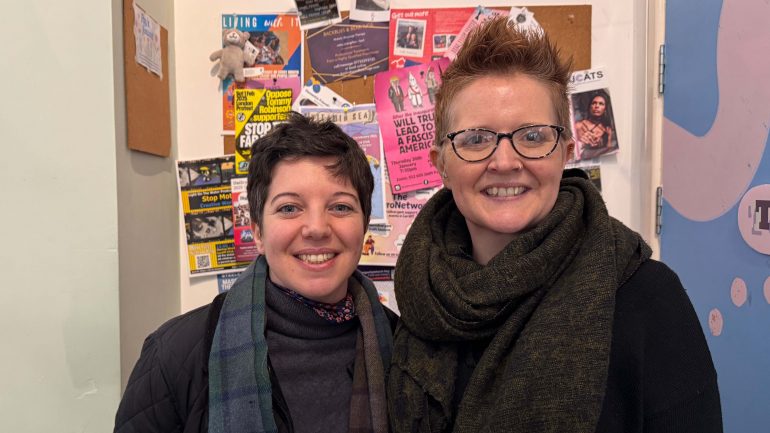LGBTQ+ people in Wales still feel the impact of a homophobic law from 1988
PEOPLE who lived through the controversial Section 28 law are being asked to share their personal experiences before those stories are lost to history.
A new project aims to gather testimony from LGBTQ+ people about the impact of the 1988 law which banned the promotion of homosexuality in society.
While the law was eventually repealed in 2003, its impact continues to be felt today and organisers of the 28 Archive project want to curate that history.
”We are in danger of losing these stories,” said Sara Correia Hopkins, one of the researchers working on the project.
“[28 Archive] can empower ourselves and the community to face the challenges that are very real right now.

“We’ve got laws like Section 28 being enacted in Europe. We’ve got the new Trump administration, who are essentially waging a war on equality legislation. These ideas do travel, we shouldn’t kid ourselves that it’s happening across the pond.
“It’s really important that we remember this history now so that we also remember the campaign against section 28 that was ultimately successful, how we can learn from that experience, and help us face today’s challenge.”
What is Section 28?
Section 28 was a clause of the Local Government Act 1988 which stated that local authorities should not:
- ‘intentionally promote homosexuality or publish material with the intention of promoting homosexuality’
- ‘promote the teaching in any maintained school of the acceptability of homosexuality as a pretended family relationship.’
The vague wording of the law meant that places such as schools and libraries were fearful to discuss any aspect of homosexuality.
Homophobic bullying went unchallenged in schools as a result, whilst authorities withdrew services that could be in breach of Section 28. This prevented young people in particular from being able to openly discuss their sexuality.
The act ultimately created a climate of self-censorship and silence, encouraging homophobia and preventing queer people from living autonomous lives.
It was repealed in 2003.
‘Histories, herstories and theirstories’
28 Archive is looking for people to join a series of workshops where people can tell their stories of Section 28 in their own words.
The project will include participatory and arts-based elements such as creative writing and theatre workshops to help capture the full story of Section 28 in Wales.
By curating those testimonies the project’s researchers hope to preserve this history for future generations and discover how the law shaped the communities, individuals and public life of Wales.The curated stories will be housed by Amugeddfa Cymru.
Researchers behind 28 Archive also hope to share their findings with the wider public, to ‘Bring the histories, herstories and theirstories of Section 28 to a new generation and a wider audience.’
The project, funded by the Learned Society of Wales, is open to anyone who has a lived experience of Section 28. The next workshop takes place on March 12, at Storyteller Café, Swansea.
- If you want to register for the project contact: s.correia@swansea.ac.uk.



